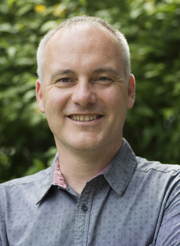
Abstract
Isaac Westwood, Mark Gurden, Seb́astien Naud, Amir Faisal, Peter Sheldrake, Vassilios Bavetsias, Butrus Atrash, Kwai-Ming J. Cheung, Manjuan Liu, Angela Hayes, Jessica Schmitt, Amy Wood, Vanessa Choi, Kathy Boxall, Grace Mak, Melanie Valenti, Alexis de Haven Brandon, Alan Henley, Ross Baker, Craig McAndrew, Berry Matijssen, Rosemary Burke, Swen Hoelder, Suzanne A. Eccles, Florence I. Raynaud, Julian Blagg, Spiros Linardopoulos, Rob L. M. van Montfort Cancer Research UK Cancer Therapeutics unit and Division of Structural Biology, The Institute of Cancer Research, London, SM2 5NG, UK.
The protein kinase MPS1 is a crucial component of the spindle assembly checkpoint signal and is aberrantly overexpressed in many human cancers. MPS1 is one of the top 25 genes overexpressed in tumours with chromosomal instability and aneuploidy. PTEN-deficient breast tumour cells are particularly dependent upon MPS1 for their survival making it a target of significant interest in oncology. I will present the discovery and optimization of MPS1 inhibitors based on the 1H-pyrrolo[3,2-c]pyridine scaffold, which yielded the potent and selective chemical tool compound CCT251455. CCT251455 has a favorable oral pharmacokinetic profile and stabilizes an inactive conformation of the MPS1 activation loop. I will discuss scaffold-hopping of CCT251455 which yielded the improved lead molecule CCT271850, and its improvement to the Phase 1 clinical candidate BOS172722. Furthermore, I will discuss our investigation into possible mechanisms of resistance to MPS1 inhibition which identified several point mutations in the MPS1 kinase domain that confer resistance against multiple inhibitors through steric hindrance to inhibitor binding. We discovered that these mutations occur in non-treated cancer cell lines and primary tumor specimens, and that they also preexist in normal lymphoblast and breast tissues. Our results therefore suggest that mutations conferring resistance to targeted therapy occur naturally in normal and malignant cells and these mutations do not arise as a result of the increased mutagenic plasticity of cancer cells.


